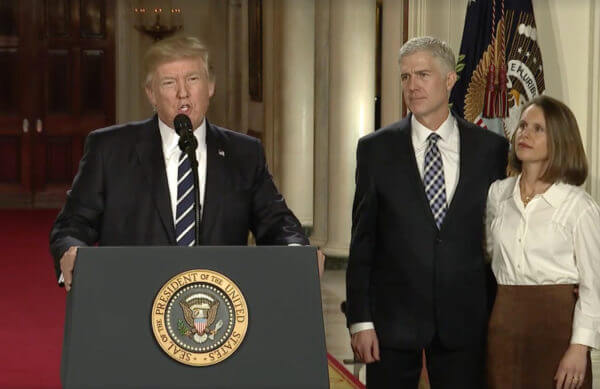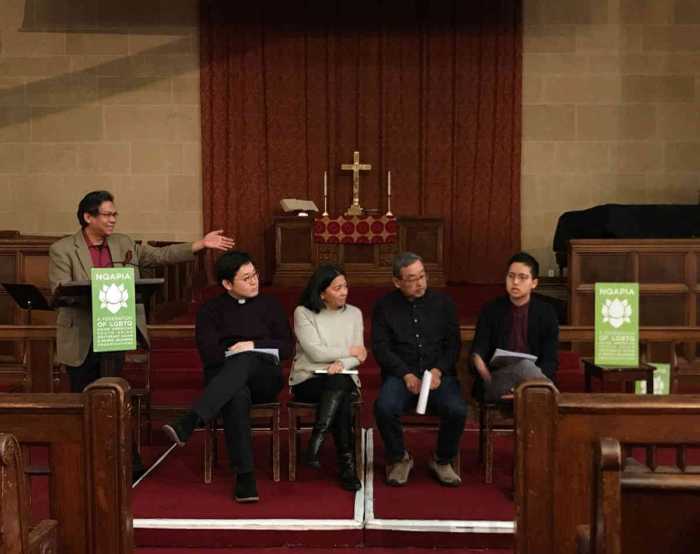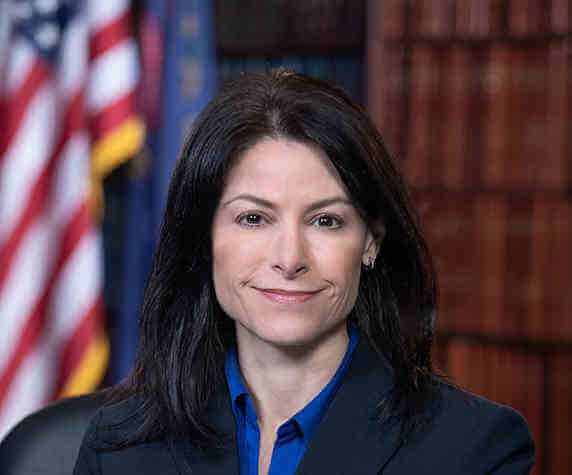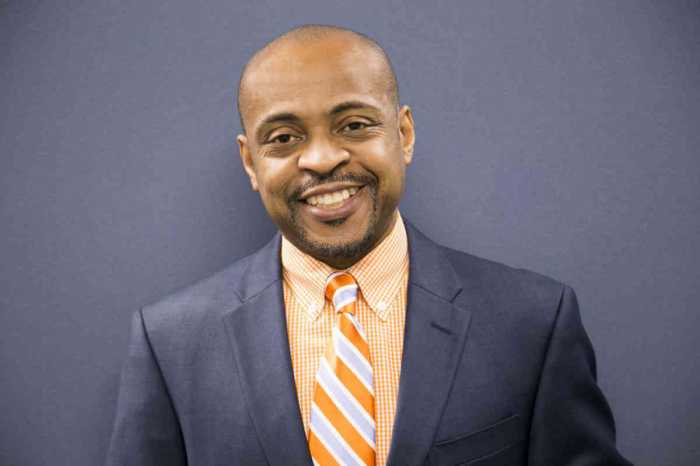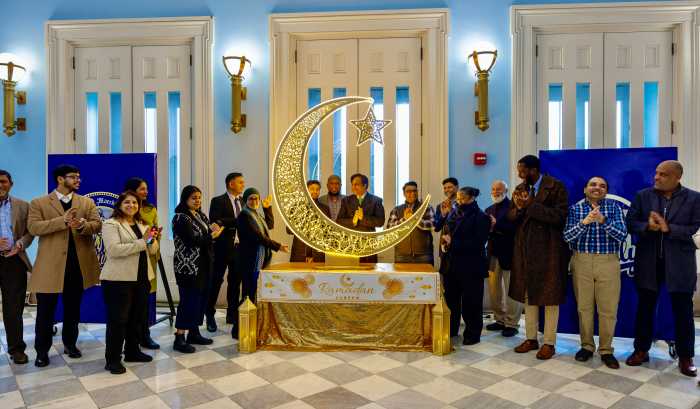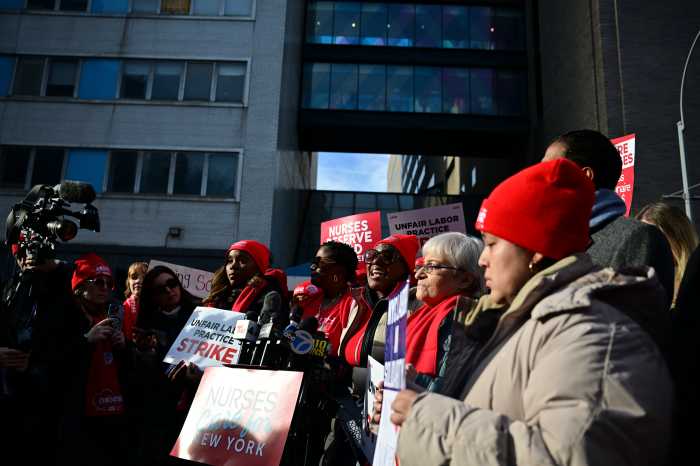President Donald Trump introduces Judge Neil Gorsuch, seen here with his wife Louise, in the East Room of the White House. | WHITEHOUSE.GOV
BY DUNCAN OSBORNE | In a brief White House event that was nationally televised, Donald Trump nominated a conservative federal circuit court judge often compared to Justice Antonin Scalia to fill the US Supreme Court seat that was left vacant by Scalia’s death in early 2016.
“You’ve entrusted me with a most solemn assignment,” Neil Gorsuch said after Trump introduced him and his wife, Louise, on the evening of January 31. “I pledge that if I’m confirmed I’ll be a faithful servant of the Constitution of this country.”
The event began with the usual crowd of Trump boosters – including his two sons now running his business empire – who gave the former celebrity, now president, an extended round of applause and cheering as he came to the podium. Scalia’s “image and genius” were on his mind when considering a replacement for the jurist, Trump said. Scalia, who was on the court for 30 years, was known for his bitter and angry dissents in cases won by the LGBT community at the nation’s highest court.
Neil Gorsuch, federal appellate judge, holds expansive views on religious exemptions
Gorsuch, who described Scalia as a “lion of the law,” gave a speech at the law school at Case Western Reserve University roughly two months after Scalia’s death in which he heaped praise on Scalia as a judge who limited his decisions according to the original intent of the drafters of the US Constitution and of Congress, a doctrine that is popular among conservatives, but is practically impossible to implement.
Scalia reminded us, Gorsuch said last year, that judges “should instead strive (if humanly and so imperfectly) to apply the law as it is, focusing backward, not forward, and looking to text, structure, and history to decide what a reasonable reader at the time of the events in question would have understood the law to be – not to decide cases based on their own moral convictions or the policy consequences they believe might serve society best.”
Gorsuch was nominated to the 10th Circuit, an appellate court that covers six western states, in 2006 by then-President George W. Bush and confirmed by the Senate. Previously, he worked in the US Department of Justice in the Bush administration. Earlier in his legal career, Gorsuch clerked for Byron White and Anthony Kennedy, both US Supreme Court justices. He also clerked for David Sentelle, a conservative judge on the District of Columbia federal appellate court.
“These justices brought me up in the law,” Gorsuch said at the White House event.
The general consensus in media reports is that Gorsuch is as conservative as Scalia, but more polite and not inclined to use invective in his opinions. His right-wing roots run deep. On February 1, Robert George, a Princeton University law professor who is a leading anti-LGBTQ voice, praised Gorsuch in a Washington Post editorial and noted that the nominee had studied under John Finnis at Oxford University. Finnis is a proponent of natural law theory, a conservative religious view that a universal morality can be discerned by analyzing human nature and the natural world.
Gorsuch has a scant record on matters that are of interest to the LGBT community, but some groups are making not unreasonable inferences about his positions given his earlier rulings and are opposing his nomination. Gorsuch joined a ruling that held that it violated the religious beliefs of the owners of a closely-held private company, Hobby Lobby, to require them to pay for contraception in employee health plans under the federal Affordable Care Act. He also ruled against a transgender prison inmate who sought consistent access to hormone therapy in 2015.
Right wingers are agitating for a federal law that will allow them to cite their religious beliefs to deny services to LGBT people. Gorsuch’s earlier ruling suggests he might be willing to uphold such a law.
“The Supreme Court has played a central role in advancing the promise of equality for LGBTQ Americans, and Judge Gorsuch’s anti-equality record – from opposing crucial medical treatment for a transgender person to supporting a license to discriminate for private corporations – make him unfit to sit on the nation’s highest court,” Chad Griffin, the chief executive of the Human Rights Campaign, the nation’s largest LGBTQ lobby, said in a statement that was issued within minutes of the announcement. “We cannot afford a justice who will roll back our rights, or who will be a rubber stamp for Donald Trump’s unconstitutional actions.”
Rea Carey, the executive director of the National LGBTQ Task Force, also opposed the Gorsuch nomination in a statement.
“Judge Neil Gorsuch’s record reveals a jurist who: believes that bosses should control their employees’ private health care decisions; supports the misuse of religion to legalize discrimination; and holds LGBTQ equality with disdain. He is also a darling of those who are vehemently opposed to marriage equality,” Carey said.
In published reports made prior to the announcement, Senate Democrats were already saying they would filibuster any Trump nominee for the US Supreme Court. Republicans, who refused to consider President Barack Obama’s pick to replace Scalia – Judge Merrick Garland, the chief judge of the US Court of Appeals for the District of Columbia Circuit – have complained about Senate Democrats stalling Trump’s nominees. For his part, Trump argued for unity.
“The qualifications of Judge Gorsuch are beyond dispute,” he said toward the close of the White House event. “I only hope that Democrats and Republicans can come together for once for the good of the country.”

